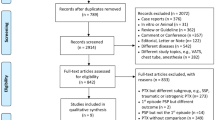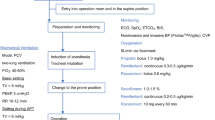Abstract
Background:
In 1993, the British Thoracic Society (BTS) issued guidelines for the management of spontaneous pneumothorax (SP). These were refined in 2003.
Aim:
To determine adherence to the 2003 BTS SP guidelines in a district general hospital.
Methods:
An initial retrospective audit of 52 episodes of acute SP was performed. Subsequent intervention involved a junior doctor educational update on both the 2003 BTS guidelines and the initial audit results, and the setting up of an online guideline hyperlink. After the educational intervention a further prospective re-audit of 28 SP episodes was performed.
Results:
Management of SP deviated considerably from the 2003 BTS guidelines in the initial audit — deviation rate 26.9%. After the intervention, a number of clinical management deviations persisted (32.1% deviation rate); these included failure to insert a chest drain despite unsuccessful aspiration, and attempting aspiration of symptomatic secondary SPs.
Conclusion:
Specific tools to improve standards might include a pneumothorax proforma to improve record keeping and a pneumothorax care pathway to reduce management deviations compared to BTS guidelines. Successful change also requires identification of the total target audience for any educational intervention.
Similar content being viewed by others
Article PDF
Author information
Authors and Affiliations
Corresponding author
Ethics declarations
Competing interests
None.
Rights and permissions
About this article
Cite this article
Medford, A., Pepperell, J. Management of spontaneous pneumothorax compared to British Thoracic Society (BTS) 2003 guidelines: a district general hospital audit. Prim Care Respir J 16, 291–298 (2007). https://doi.org/10.3132/pcrj.2007.00060
Received:
Accepted:
Published:
Issue date:
DOI: https://doi.org/10.3132/pcrj.2007.00060



